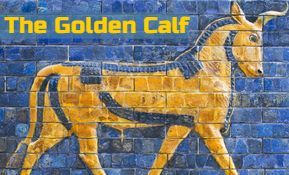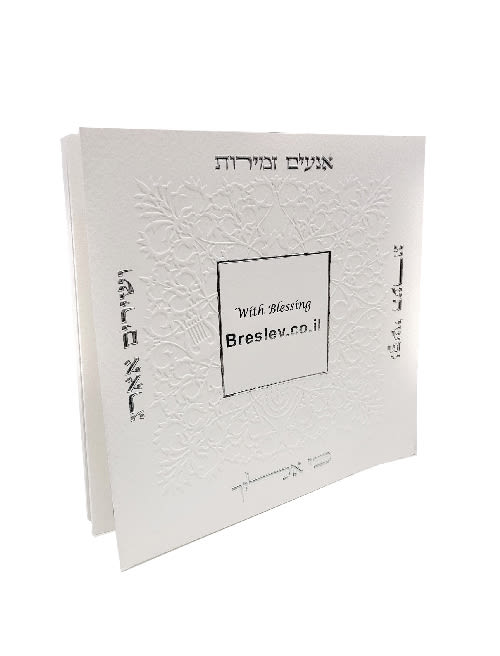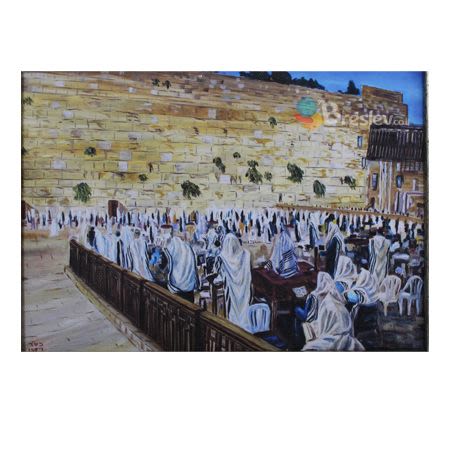
Tazria Metzora: Who Wants Life
The slanderer does not go to a doctor, because his physical symptoms were the result of a spiritual disease...

Spiritual Malady
“God spoke to Moshe (Moses) and to Aharon (Aaron), saying: If a man has a se’eit, a sappachat, or a baheret on the skin of his flesh, and it forms a lesion of tzaraat on the skin of his flesh, he shall be brought to Aharon the Kohen, or to one of his sons, the Kohanim” (Vayikra 13:1-2).
Tzaraat is commonly translated as “leprosy,” and it is accepted that a suspected victim of tzaraat or a confirmed metzora, one smitten with the disease, was quarantined and excluded from the camp to stop the disease from spreading.
Rabbi Shimshon Raphael Hirsch demonstrates conclusively that both these notions are erroneous. Very briefly, he demonstrates that the symptoms of tzaraat, as outlined in our Parshah, are very different from those of leprosy. Furthermore, if the reason for the metzora’s confinement is to prevent contagion, then some of the laws would be ludicrous. For instance, if the malady covers the victim’s entire body (Ibid. 13:13), he is not impure, but if his skin begins to heal, he becomes impure.
In perhaps the most telling example, the Talmud teaches that if the symptoms of tzaraat appear on a newlywed or during the festival season, the Kohen does not examine the affliction or declare it to be impure, so as not to interfere with the celebration. But if the purpose of these laws is to prevent the spread of disease, it would be absolutely imperative to enforce the laws at times of overcrowding and mingling!
Clearly tzaraat is not a bodily disease, but the physical manifestation of a spiritual malaise, a punishment designed to show the offender that he must mend his ways. The primary cause of tzaraat is the sin of slander. As the Sages say, the word metzora is a contraction of motzei ra, one who spreads slander (Arachin 15b). (ArtScroll Chumash).
The Purpose of Isolation
God rebukes the slander’s anti-social behavior by isolating him from society: “He shall dwell isolated; his dwelling shall be outside the camp” (Vayikra 13:46). “He caused a rift between man and his fellow man with his slander, therefore the Torah says: ‘He shall dwell isolated’” (Arachin 16b).
Rabbi Zalman Sorotzkin, in his classic work Oznain LaTorah, describes the slander’s development. This is an individual who imagines that Reuven is harming his livelihood or that Shimon has slighted his honor or poked fun at him. In response, he tells Reuven all about Shimon’s flaws and then turns to Shimon and complains about Reuven.
Gradually he progresses from hating individuals to hating the entire world. He thinks the whole world was created “just for me,” and that everyone is stealing what is rightfully his. Full of hatred and jealousy, he wishes that everyone would go away and leave him alone.
Although he is despicable, Heaven has mercy on him and instead of dying from a plague, as did the spies who slandered the Land of Israel, he contacts tzaraat. The cure for his spiritual malady comes through his isolation outside the camp. There, he is truly alone, and begins to miss contact with others, and wishes that someone would come and extricate him from his predicament. He begins to value proper human relationships and he stops looking for ways to insult others. His isolation teaches him to love his fellow man.
The Peddler of Life
Rabbi Reuven Katz, the world-renowned Chief Rabbi of Petach Tikvah, Israel, explains the following Midrash in a similar fashion:
“A man was peddling his wares in the towns surrounding Tzippori. He would call out: ‘Who wants to buy the elixir of life?’ People flocked to him to see his wares. Rabbi Yanai was learning in his home, and he called out: ‘Come up here and sell me some.’
“The peddler said: ‘You and your like do not need it.’
“Rabbi Yanai pressed him and he came up. He took out a book of Psalms and showed him the verse: ‘Who is the man who desires life, who loves days to see goodness? Guard your tongue from evil and your lips from speaking deceitfully’ (Tehillim 34:13-14). Shlomo also said: ‘He who watches his mouth and his tongue guards his soul from troubles’ (Mishlei 21:23).
“Rabbi Yanai said: ‘I recited this verse my entire life and I did not realize its simple meaning, until this man came up and showed me.’
“Therefore, Moshe warned Yisrael in the Torah: ‘This shall be the law of the metzora’ (Vayikra 14:2)—the law of the motzei shem ra (the word metzora is a contraction of motzei ra, one who spreads slander)” (Midrash Rabbah 16:2).
The Midrash requires some explanation. What did the peddler teach Rabbi Yanai that Rabbi Yanai did not already know? And what is the connection of the peddler’s elixir to the verse in Vayikra?
Rabbi Katz analyzes the reason for the metzora’s isolation. It could be understood in a spiritual way: Because he slandered and caused a rift amongst people, he is punished — measure for measure — to dwell in isolation. During his time alone, he will make a spiritual accounting and do teshuva, repentance.
There is, however, a further meaning. Through a natural educational method, the punishment comes to uproot the evil from the slanderer and to prepare him for normal human relationships. When a person engages in gossip and slander, he becomes an object of hatred. No one trusts him and no one wants to be close to him. Experience shows that even his closest family members cannot bear to be with him, and he most certainly cannot make friends and business connections.
When he sits in isolation, his detachment from human contact teaches him to value normal human relationships.
Until the peddler came, Rabbi Yanai had assumed that the verse in Tehillim — “Who is the man who desires life” –was dealing with spiritual reward alone. Then he heard the peddler calling out: “Who wants the elixir of life?” Everyone naturally thought he was selling a miracle drug that would grant long life.
When Rabbi Yanai saw he was speaking about the verse in Tehillim, he suddenly realized that the verse taught that the key to a happy, productive life of peace and friendship – an elixir of life — was to avoid gossip and slander. When we guard our tongue we achieve a new quality of life! (Dudaei Reuven).
The Seed of Aharon
“This shall be the law of the metzora”—the law of the motzei shem ra, the one who spreads slander—“on the day of his purification he shall be brought to the Kohen” (Vayikra 14:2).
The slanderer does not go to a doctor, because his physical symptoms were the result of a spiritual disease. Instead, he goes to a Kohen, who was charged with a national responsibility of teaching the Torah and its ways of peace and pleasantness.
The Kohen was a descendent of Aharon, about whom it was said: “Hillel would say: Be of the disciples of Aharon—a lover of peace, a pursuer of peace, one who loves the creatures and draws them close to Torah” (Avot 1:12). Thus, the Kohen was especially capable of bringing the spiritual remedy to the metzora and showing him the ways of peace and love.
May we internalize the Torah’s ways of peace and pleasantness and avoid the pitfall of slander and gossip!












Tell us what you think!
Thank you for your comment!
It will be published after approval by the Editor.